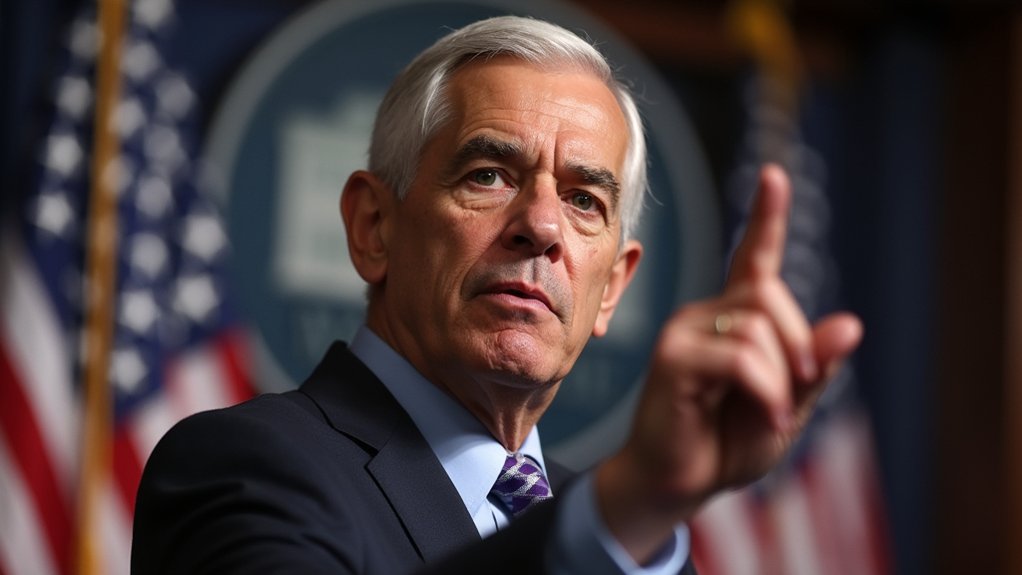Vitalik Buterin, born in Russia and raised in Canada, co-founded Ethereum at age 20 after recognizing Bitcoin’s limitations couldn’t support complex programmable applications. His creation of smart contracts—self-executing agreements without intermediaries—spawned entire industries including decentralized finance (DeFi) platforms managing billions in assets. Beyond technical innovation, Buterin’s shift of Ethereum from energy-intensive Proof of Work to Proof of Stake demonstrates both environmental consciousness and political acumen within crypto communities, establishing his influence on digital infrastructure’s future trajectory.

In the pantheon of cryptocurrency visionaries, few figures command the peculiar combination of reverence and bewilderment that surrounds Vitalik Buterin—a Russian-born programmer who, at the tender age of twenty, managed to architect what would become the world’s second-largest cryptocurrency ecosystem by market capitalization.
Born in Kolomna in 1994, Buterin immigrated to Canada at six, where his prodigious mathematical and programming abilities earned him the sort of childhood accolades that either produce Nobel laureates or spectacular burnouts.
His cryptocurrency journey began with characteristic millennial skepticism toward Bitcoin in 2011, though he quickly shifted from critic to evangelist, co-founding Bitcoin Magazine and investing thirty-plus hours weekly in what most adults dismissed as internet Monopoly money.
The decision to abandon university for full-time blockchain development—a move that would have horrified immigrant parents everywhere—proved prescient when he received the Thiel Fellowship in 2013.
Buterin’s eureka moment came from recognizing Bitcoin’s functional limitations. Rather than accepting cryptocurrency as merely digital gold, he envisioned blockchain as a programmable infrastructure capable of executing complex agreements without intermediaries.
This conceptual leap birthed Ethereum in 2014, introducing smart contracts—self-executing agreements that have since enabled everything from decentralized finance protocols to the NFT marketplace (where digital art sells for millions, because apparently we needed cryptocurrency to make art collecting even more incomprehensible). The project’s ambitious goals required substantial funding, leading to a groundbreaking crowdfunding effort that raised approximately 31,591 bitcoins worth around $18.4 million from investors worldwide.
The technological implications proved staggering. Ethereum’s Turing-complete programming language spawned entire industries: DeFi platforms managing billions in assets, decentralized applications across sectors, and infrastructure supporting thousands of blockchain projects. These decentralized applications operate through smart contracts that automatically execute when conditions are met, creating a financial system that enables peer-to-peer transactions without traditional intermediaries.
His recent leadership in evolving Ethereum from energy-intensive Proof of Work to Proof of Stake addressed scalability concerns while reducing environmental impact—a move requiring both technical brilliance and political maneuvering within a notoriously fractious community.
Beyond technical achievements, Buterin’s influence extends to policy and philanthropy. His substantial COVID-19 relief donations and advocacy for blockchain-enabled social impact demonstrate how cryptocurrency’s enfant terrible has matured into a thoughtful steward of technological power. His intellectual contributions have earned him recognition from Time magazine, which named him among the 100 most influential people in 2021.
Whether Ethereum ultimately revolutionizes global finance or becomes history’s most elaborate software experiment, Buterin’s impact on digital infrastructure remains undeniable—a remarkable legacy for someone barely approaching thirty.
Frequently Asked Questions
What Is Vitalik Buterin’s Net Worth and How Much Ethereum Does He Own?
Buterin’s net worth fluctuates dramatically with crypto market volatility, currently estimated between $650 million and $1 billion in 2025.
He holds approximately 240,081 ETH tokens—valued around $593 million—representing the majority of his wealth.
His peak net worth reached $1.46 billion in 2021 before plummeting to $550 million during 2022’s crypto winter, demonstrating how tightly his fortune remains tethered to Ethereum’s mercurial price movements.
Does Vitalik Buterin Have Any Formal Computer Science or Programming Education Background?
Buterin possesses substantial formal computer science education, having studied at University of Waterloo—Canada’s premier tech institution—where he completed advanced cryptography coursework and served as research assistant under renowned cryptographer Ian Goldberg.
His bronze medal at the 2012 International Olympiad in Informatics demonstrates competitive programming prowess.
However, he famously abandoned his degree in 2014 after securing the Thiel Fellowship, trading academic credentials for entrepreneurial ambitions (a calculated gamble that proved prescient).
What Other Cryptocurrency Projects Has Vitalik Buterin Been Involved With Besides Ethereum?
Buterin’s involvement extends well beyond Ethereum’s founding, spanning Layer 2 scaling solutions like MegaETH and StarkNet (yielding 146x returns), decentralized social platforms including Farcaster, and prediction markets through Polymarket.
His portfolio encompasses seven known projects with varying outcomes—from Bitcoin Magazine’s early establishment to Nocturne’s recent shutdown.
He maintains holdings in DeFi tokens like Kyber Network, Augur, and Maker, demonstrating consistent focus on Ethereum ecosystem expansion.
Is Vitalik Buterin Married and Does He Have Any Children or Family?
Buterin maintains remarkable privacy regarding personal matters—no publicly confirmed information exists about marriage or children.
The Ethereum co-founder, born in 1994, keeps family discussions limited to his parents and siblings who relocated from Russia to Canada during his childhood.
While crypto communities occasionally speculate, Buterin’s deliberate focus on professional achievements over personal milestones leaves such details notably absent from public discourse, unlike many tech celebrities.
What Are Vitalik Buterin’s Biggest Criticisms of Bitcoin and Other Blockchain Networks?
Buterin’s Bitcoin critiques center on environmental wastefulness—citing $600 million annual electricity expenditure—and governance failures during the 2015-2017 block size wars, which he viewed as technologically myopic.
He condemns simplistic financial models like stock-to-flow as dangerously misleading, while expressing moral concerns about crypto’s permissive embrace of gambling applications.
His criticisms fundamentally position proof-of-work as unsustainable and Bitcoin’s development process as fractured compared to Ethereum’s more cohesive evolution.









